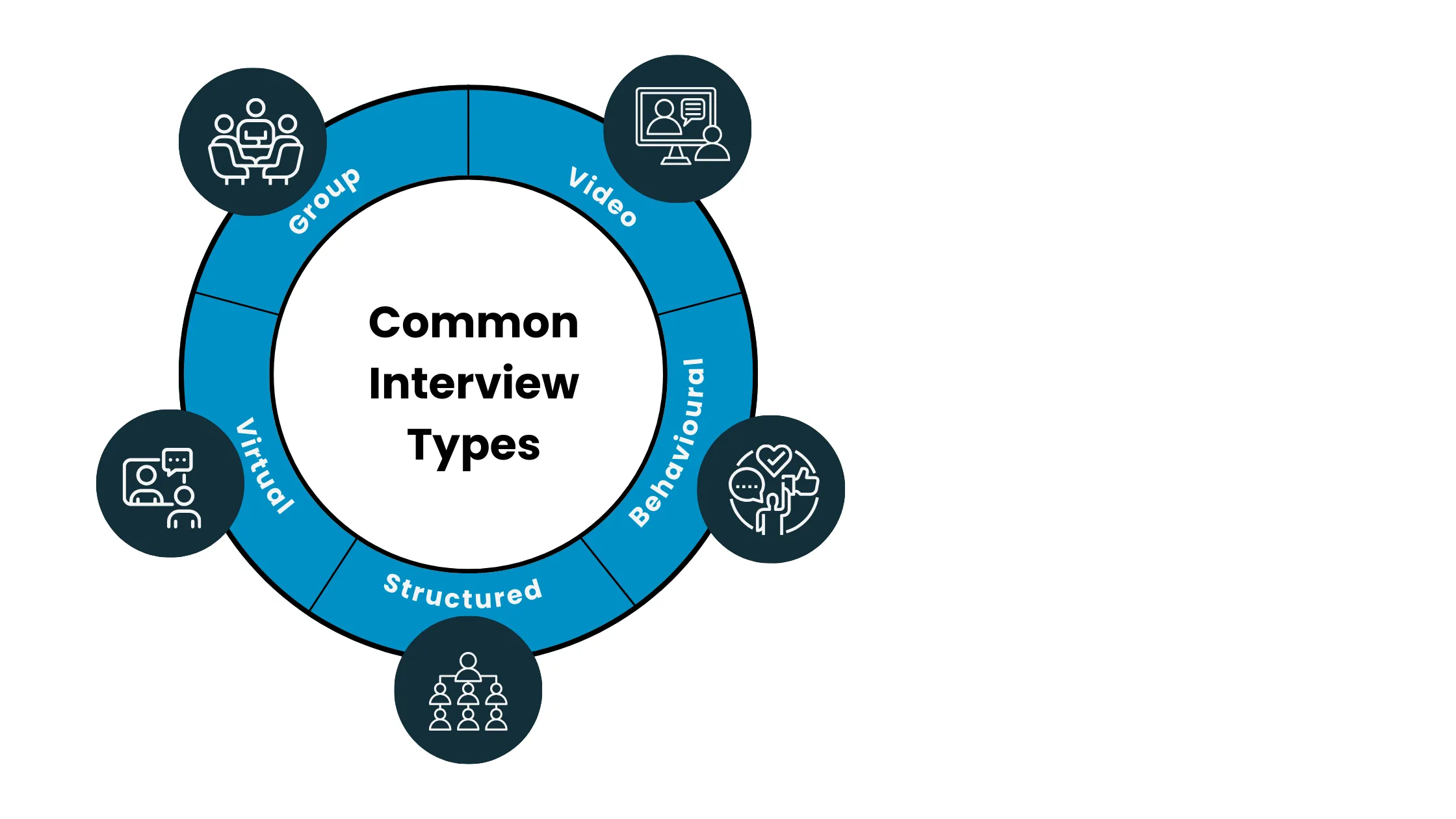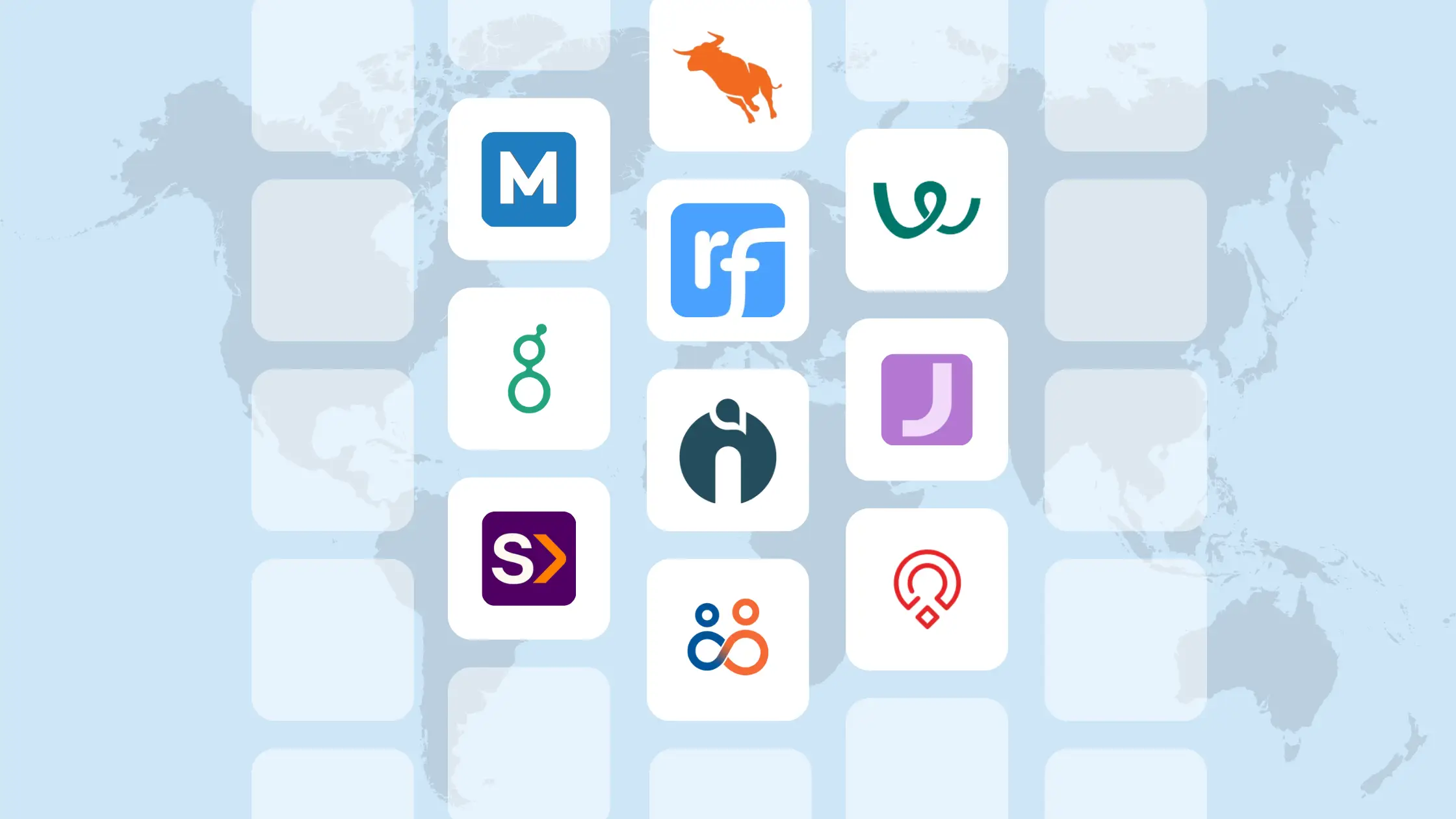Have you ever felt like you're just going through the motions, interviewing person after person, but need help finding the right one? You're not the only one. Finding great talent can be challenging, especially when using the same old interview methods. But what if changing your interview approach could help you find the high-quality candidates you've been looking for?
Choosing the correct type of interview can impact the hiring process. That's why we will look at different types of interviews and how to pick the best one for your needs. Whether you want to test skills, see if someone fits your team's culture, or check how they handle stress, there's an interview style that's perfect for that.
So, are you ready to learn about the different types of interviews that could help you find that top talent? Let's begin!
The Purpose of an Interview
The purpose of an interview is to uncover skills, cultural fit, and potential—key factors that go beyond a resume. When assessing skills, I focus on how a candidate applies them to real-world scenarios, tailoring questions to match the job's demands. For cultural fit, I look at how their values and working style align with the team, often using situational questions to gauge compatibility. The potential is about spotting tomorrow’s leader by exploring their long-term vision and growth mindset.
The key is tailoring the interview format to the role. Structured interviews work well for entry-level positions, while conversational styles reveal depth for leadership roles. A one-size-fits-all approach never works—customisation is essential to uncover what truly matters for the job.
5 Types Of Interviews You Should Know
Interviews can vary in many ways, and understanding the right type can help make your hiring process easier and more successful. Here are five basic types of interviews that every recruiter should know to find the best fit for your team.
1. Group Interviews
Group interviews involve evaluating several candidates simultaneously, which is great for jobs requiring teamwork, such as sales or customer service. They save time and provide helpful information about how people work together, communicate, and handle stress.
But having a good structure is important. Activities like group problem-solving show how well people can collaborate, but creating a welcoming atmosphere is essential so quieter candidates don't get overlooked. Look for meaningful contributions, not just the loudest voices—good leaders often show their skills in subtle ways. With the right setup, group interviews can quickly identify strong team players.
Group Interview Tools:
- Zoom or Microsoft Teams: Perfect for online group interviews, especially with breakout rooms.
- Miro or MURAL: Best for teamwork tasks.
- Scorebuddy: Assists in scoring candidates fairly.
2. Video Interviews
Video interviews are types of interviews where meetings are done online using video chat tools, letting people talk face-to-face even if they are far apart.
They work well for people who live far away or when the job needs to check how well someone can communicate or present ideas on camera or if they can handle working from home.
Video interviews are used, especially for higher-level jobs and remote work. They let you see how someone acts, their facial expressions, and body language, which you can't see in a phone call.
Tools for Video Interviews:
- Zoom: Flexible with group features.
- Microsoft Teams: Good for businesses with teamwork options.
- Google Meet: Easy to use and works in a web browser.
- HireVue: Made for hiring, with options for recorded interviews.
- Skype: Trustworthy for talking to people in other countries.
3. Behavioural Interviews
Behavioural interviews types are a great way to see how candidates have dealt with real-life situations in the past.
The idea is simple: what someone has done before can show what they will do in the future. Instead of asking about what they might do, you ask about what they have actually done in their jobs.
For example, if you're looking for a leader, you might ask, "Can you tell me about a time when you had to guide a team through a tough change?" This helps you see not just their skills but also how they think, solve problems, and work with others. To get a deeper understanding, it's important to ask follow-up questions like "What happened as a result?" or "What would you change?". Behavioural interviews have always helped me find top performers by giving a clear and predictable picture of how candidates handle challenges.
Tools for Behavioral Interviews:
- Loom: This is for recording remote interviews so you can review them later.
- Scorebuddy: To make sure you consistently score skills and abilities.
- Jobvite: Offers a database of structured, competency-based questions.
4. Virtual Interviews
Virtual interviews are conducted via video tools like screen sharing, whiteboard sessions, and real-time document collaboration. They are perfect for hiring remotely, recruiting worldwide, and for jobs that need to show skills in action.
These interviews are beneficial for checking practical skills. For example, screen sharing lets candidates display their work, and whiteboarding is excellent for testing problem-solving during coding exercises.
Make sure to test the platform beforehand and that both sides have a quiet place to avoid technical issues.
Tools for Online Interviews:
- Microsoft Teams: Works well with Office tools for team-based roles.
- Google Meet: Easy to use for first interviews.
- Miro or MURAL: Good for whiteboard sessions and brainstorming.
- CoderPad: Perfect for live coding tests.
Online interviews are quick and flexible, allowing candidates to show their skills well, no matter where they are.
5. Structured Interviews
In Structured interviews, every candidate is asked the same set of predetermined questions to ensure fairness and consistency. This method is very useful for entry-level positions where objectivity is important, as it allows you to directly compare each candidate's answers against a standard set of expectations.
Structured interviews are most effective when you need clear and measurable information about a candidate's qualifications and skills. They are perfect for roles like customer service or junior analyst positions, where specific job skills are more critical than personal impressions.
Tools for Structured Interviews:
- Google Forms: Helps organise questions and track responses easily.
- Scorebuddy: Used for standardised scoring and analysing responses.
- HireVue: Allows for structured video interviews with AI-based assessments.
- Greenhouse: Helps keep the interview process consistent and organised.
Structured interviews are efficient, fair, and based on data, making them a crucial tool for recruiters who want to confidently hire the right person for the job.
Conclusion
To sum up, the key to finding excellent talent is using a balanced interview approach. You can get a full picture of each candidate using various interview techniques & methods, increasing your chances of making a good hire. Whether you're checking skills, understanding past behaviour, or assessing cultural fit, each interview type is important in showing what a candidate can offer your team.
Feel free to combine these interview types to fit the job and your company's needs. The time and effort you put into hiring will be worth it, as a well-matched hire can greatly improve your team's productivity and morale. So, be creative, be thorough, and enjoy the hiring process!












